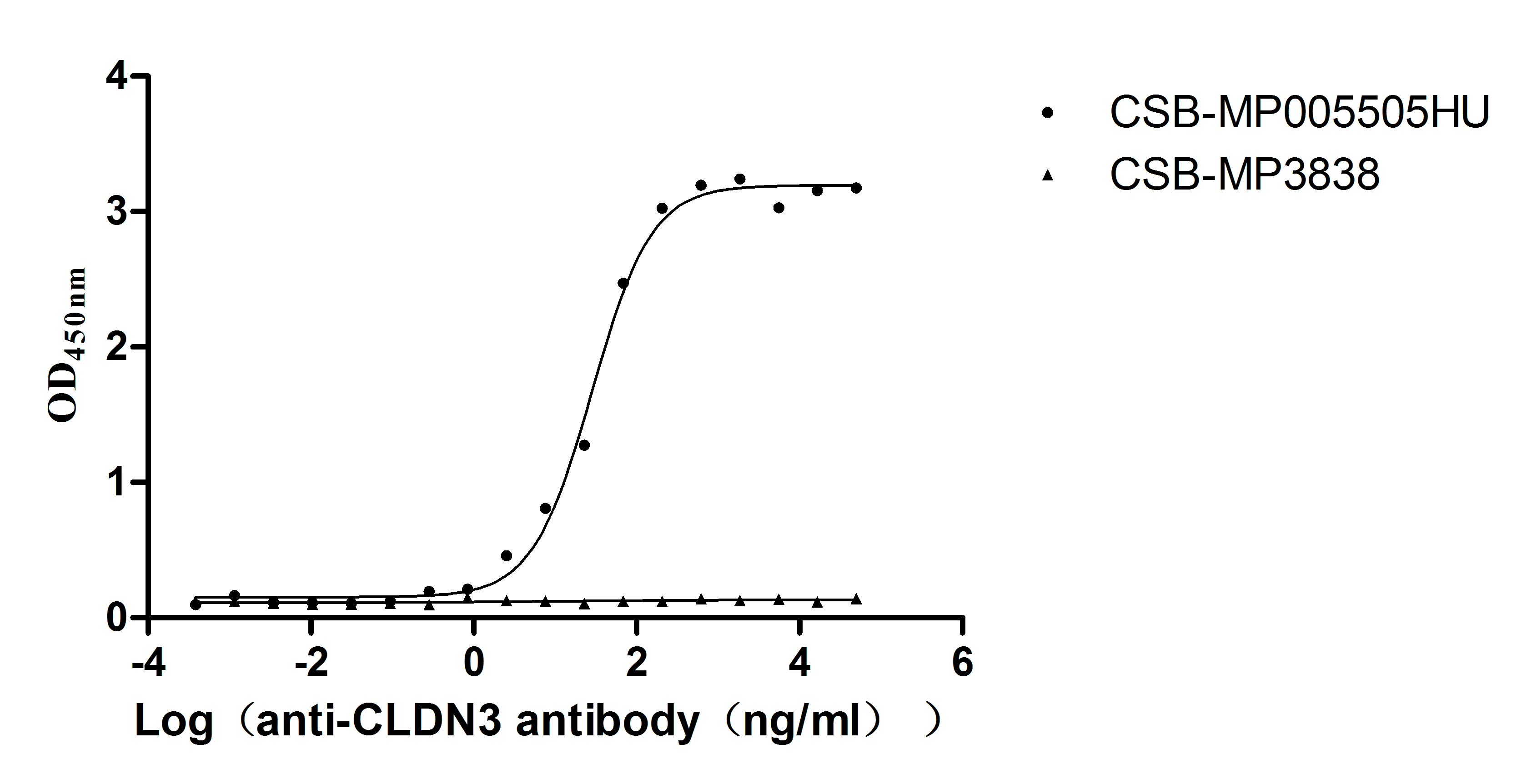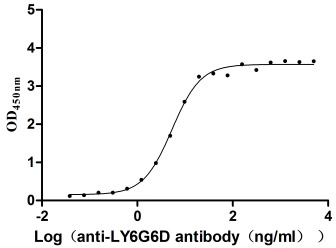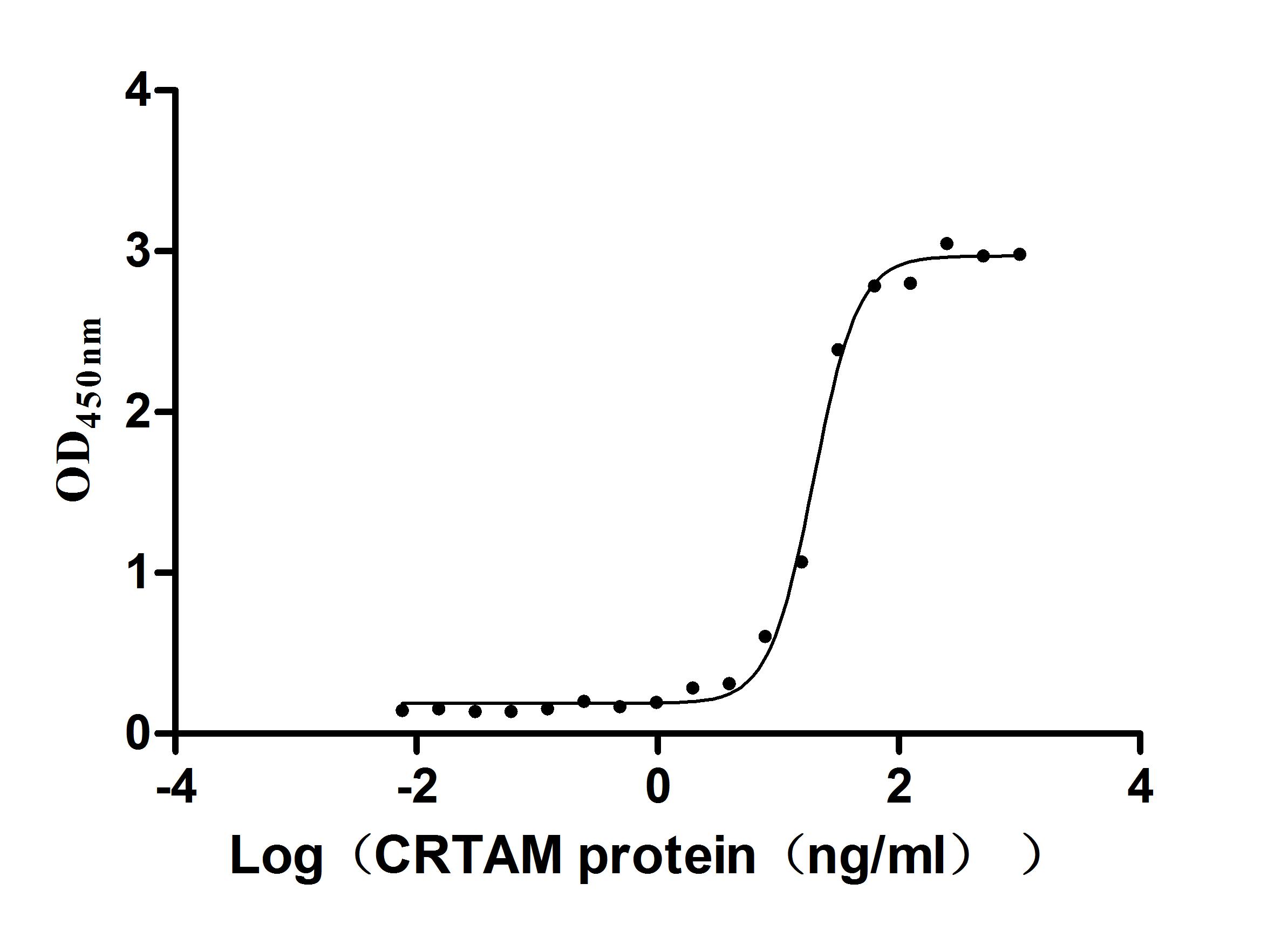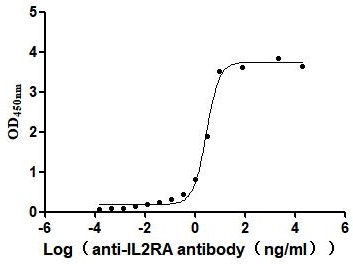Recombinant Human hepatitis A virus genotype IIA Genome polyprotein
-
货号:CSB-YP730419HCAS
-
规格:
-
来源:Yeast
-
其他:
-
货号:CSB-EP730419HCAS
-
规格:
-
来源:E.coli
-
其他:
-
货号:CSB-EP730419HCAS-B
-
规格:
-
来源:E.coli
-
共轭:Avi-tag Biotinylated
E. coli biotin ligase (BirA) is highly specific in covalently attaching biotin to the 15 amino acid AviTag peptide. This recombinant protein was biotinylated in vivo by AviTag-BirA technology, which method is BriA catalyzes amide linkage between the biotin and the specific lysine of the AviTag.
-
其他:
-
货号:CSB-BP730419HCAS
-
规格:
-
来源:Baculovirus
-
其他:
-
货号:CSB-MP730419HCAS
-
规格:
-
来源:Mammalian cell
-
其他:
产品详情
-
纯度:>85% (SDS-PAGE)
-
基因名:N/A
-
Uniprot No.:
-
别名:Genome polyprotein [Cleaved into: Protein VP0; VP4-VP2); Protein VP4; P1A; Virion protein 4); Capsid protein VP2; P1B; Virion protein 2); Capsid protein VP3; P1C; Virion protein 3); Protein VP1-2A; VPX); Capsid protein VP1; P1D; Virion protein 1); Assembly signal 2A; pX); Protein 2BC; Protein 2B; P2B); Protein 2C; P2C; EC 3.6.1.15); Protein 3ABCD; P3); Protein 3ABC; Protein 3AB; Protein 3A; P3A); Viral protein genome-linked; VPg; Protein 3B; P3B); Protein 3CD; Protease 3C; P3C; EC 3.4.22.28; Picornain 3C); RNA-directed RNA polymerase 3D-POL; P3D-POL; EC 2.7.7.48)]
-
种属:Human hepatitis A virus genotype IIA (isolate CF-53) (HHAV) (Human hepatitis A virus (isolate Human/France/CF-53/1979))
-
蛋白长度:Partial
-
蛋白标签:Tag type will be determined during the manufacturing process.
The tag type will be determined during production process. If you have specified tag type, please tell us and we will develop the specified tag preferentially. -
产品提供形式:Lyophilized powder
Note: We will preferentially ship the format that we have in stock, however, if you have any special requirement for the format, please remark your requirement when placing the order, we will prepare according to your demand. -
复溶:We recommend that this vial be briefly centrifuged prior to opening to bring the contents to the bottom. Please reconstitute protein in deionized sterile water to a concentration of 0.1-1.0 mg/mL.We recommend to add 5-50% of glycerol (final concentration) and aliquot for long-term storage at -20℃/-80℃. Our default final concentration of glycerol is 50%. Customers could use it as reference.
-
储存条件:Store at -20°C/-80°C upon receipt, aliquoting is necessary for mutiple use. Avoid repeated freeze-thaw cycles.
-
保质期:The shelf life is related to many factors, storage state, buffer ingredients, storage temperature and the stability of the protein itself.
Generally, the shelf life of liquid form is 6 months at -20°C/-80°C. The shelf life of lyophilized form is 12 months at -20°C/-80°C. -
货期:Delivery time may differ from different purchasing way or location, please kindly consult your local distributors for specific delivery time.Note: All of our proteins are default shipped with normal blue ice packs, if you request to ship with dry ice, please communicate with us in advance and extra fees will be charged.
-
注意事项:Repeated freezing and thawing is not recommended. Store working aliquots at 4°C for up to one week.
-
Datasheet :Please contact us to get it.
靶点详情
-
功能:Capsid proteins VP1, VP2, and VP3 form a closed capsid enclosing the viral positive strand RNA genome. All these proteins contain a beta-sheet structure called beta-barrel jelly roll. Together they form an icosahedral capsid (T=3) composed of 60 copies of each VP1, VP2, and VP3, with a diameter of approximately 300 Angstroms. VP1 is situated at the 12 fivefold axes, whereas VP2 and VP3 are located at the quasi-sixfold axes. The naked capsid interacts with the host receptor HAVCR1 to provide virion attachment to and probably entry into the target cell.; Capsid proteins VP1, VP2, and VP3 form a closed capsid enclosing the viral positive strand RNA genome. All these proteins contain a beta-sheet structure called beta-barrel jelly roll. Together they form an icosahedral capsid (T=3) composed of 60 copies of each VP1, VP2, and VP3, with a diameter of approximately 300 Angstroms. VP1 is situated at the 12 fivefold axes, whereas VP2 and VP3 are located at the quasi-sixfold axes. The naked capsid interacts with the host receptor HAVCR1 to provide virion attachment to and probably entry into the target cell.; Capsid proteins VP1, VP2, and VP3 form a closed capsid enclosing the viral positive strand RNA genome. All these proteins contain a beta-sheet structure called beta-barrel jelly roll. Together they form an icosahedral capsid (T=3) composed of 60 copies of each VP1, VP2, and VP3, with a diameter of approximately 300 Angstroms. VP1 is situated at the 12 fivefold axes, whereas VP2 and VP3 are located at the quasi-sixfold axes. The naked capsid interacts with the host receptor HAVCR1 to provide virion attachment to and probably entry into the target cell.; VP0 precursor is a component of the immature procapsids.; Plays a role in the assembly of the 12 pentamers into an icosahedral structure. Has not been detected in mature virions, supposedly owing to its small size.; Precursor component of immature procapsids that corresponds to an extended form of the structural protein VP1. After maturation, possibly by the host Cathepsin L, the assembly signal 2A is cleaved to give rise to the mature VP1 protein.; Functions as a viroporin. Affects membrane integrity and causes an increase in membrane permeability. Involved in host intracellular membrane rearrangements probably to give rise to the viral factories. Does not disrupt calcium homeostasis or glycoprotein trafficking. Antagonizes the innate immune response of the host by suppressing IFN-beta synthesis, which it achieves by interfering with the DDX58/IFIH1 (RIG-I/MDA5) pathway.; Affects membrane integrity and causes an increase in membrane permeability.; Associates with and induces structural rearrangements of intracellular membranes. Displays RNA-binding activity.; The precursor 3ABC is targeted to the mitochondrial membrane where protease 3C activity cleaves and inhibits the host antiviral protein MAVS, thereby disrupting activation of IRF3 through the IFIH1/MDA5 pathway. In vivo, the protease activity of 3ABC precursor is more efficient in cleaving the 2BC precursor than that of protein 3C. The 3ABC precursor may therefore play a role in the proteolytic processing of the polyprotein. Possible viroporin.; Interacts with the 3CD precursor and with RNA structures found at both the 5'- and 3'-termini of the viral genome. Since the 3AB precursor contains the hydrophobic domain 3A, it probably anchors the whole viral replicase complex to intracellular membranes on which viral RNA synthesis occurs.; May serve as membrane anchor to the 3AB and 3ABC precursors via its hydrophobic domain. May interact with RNA.; Acts as a primer for viral RNA replication and remains covalently bound to viral genomic RNA. VPg is uridylylated prior to priming replication into VPg-pUpU. The VPg-pUpU is then used as primer on the genomic RNA poly(A) by the RNA-dependent RNA polymerase to replicate the viral genome.; Cysteine protease that generates mature viral proteins from the precursor polyprotein. In addition to its proteolytic activity, it binds to viral RNA, and thus influences viral genome replication. RNA and substrate bind cooperatively to the protease. Cleaves IKBKG/NEMO to impair innate immune signaling. Cleaves host PABPC1 which may participate in the switch of viral translation to RNA synthesis.; Interacts with the 3AB precursor and with RNA structures found at both the 5'- and 3'-termini of the viral genome. Disrupts TLR3 signaling by degrading the host adapter protein TICAM1/TRIF.; RNA-directed RNA polymerase 3D-POL replicates genomic and antigenomic RNA by recognizing replications specific signals.
-
亚细胞定位:[Capsid protein VP2]: Virion. Host endosome, host multivesicular body.; [Capsid protein VP3]: Virion. Host endosome, host multivesicular body.; [Capsid protein VP1]: Virion. Host endosome, host multivesicular body.; [Capsid protein VP4]: Virion.; [Protein 2B]: Host membrane; Peripheral membrane protein.; [Protein 2C]: Host membrane; Single-pass membrane protein.; [Protein 3ABC]: Host membrane; Single-pass membrane protein. Host mitochondrion outer membrane; Single-pass membrane protein.; [Protein 3AB]: Host membrane; Single-pass membrane protein.; [Protein 3A]: Host membrane; Single-pass membrane protein.; [Viral protein genome-linked]: Virion.; [Protease 3C]: Host cytoplasm.; [RNA-directed RNA polymerase 3D-POL]: Host cytoplasmic vesicle membrane; Peripheral membrane protein; Cytoplasmic side.
-
蛋白家族:Picornaviridae polyprotein family
Most popular with customers
-
Recombinant Human T-cell immunoreceptor with Ig and ITIM domains (TIGIT), partial (Active)
Express system: Mammalian cell
Species: Homo sapiens (Human)
-
Recombinant Human Semaphorin-4D (SEMA4D), partial (Active)
Express system: Mammalian cell
Species: Homo sapiens (Human)
-
Recombinant Human Nectin-4 (NECTIN4), partial (Active)
Express system: Mammalian cell
Species: Homo sapiens (Human)
-
Recombinant Human C-X-C chemokine receptor type 4 (CXCR4)-VLPs (Active)
Express system: Mammalian cell
Species: Homo sapiens (Human)
-
Recombinant Human Claudin-3 (CLDN3)-VLPs (Active)
Express system: Mammalian cell
Species: Homo sapiens (Human)
-
Recombinant Macaca fascicularis lymphocyte antigen 6 family member G6D (LY6G6D) (Active)
Express system: Yeast
Species: Macaca fascicularis (Crab-eating macaque) (Cynomolgus monkey)
-
Recombinant Human Cell adhesion molecule 1 (CADM1), partial (Active)
Express system: Mammalian cell
Species: Homo sapiens (Human)
-
Recombinant Human Interleukin-2 receptor subunit alpha (IL2RA), partial (Active)
Express system: Mammalian cell
Species: Homo sapiens (Human)


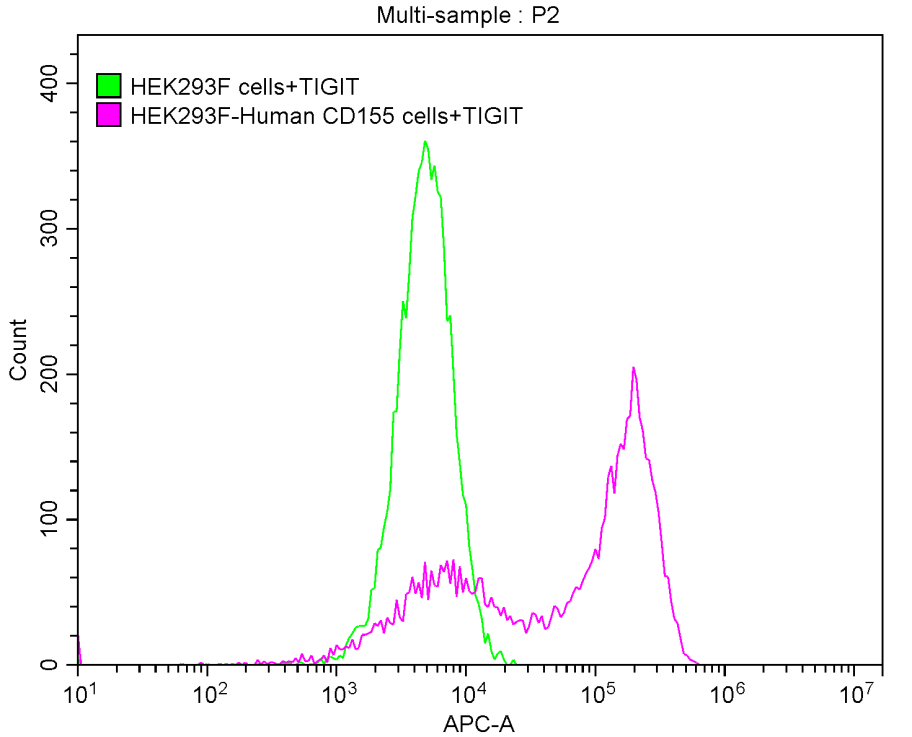
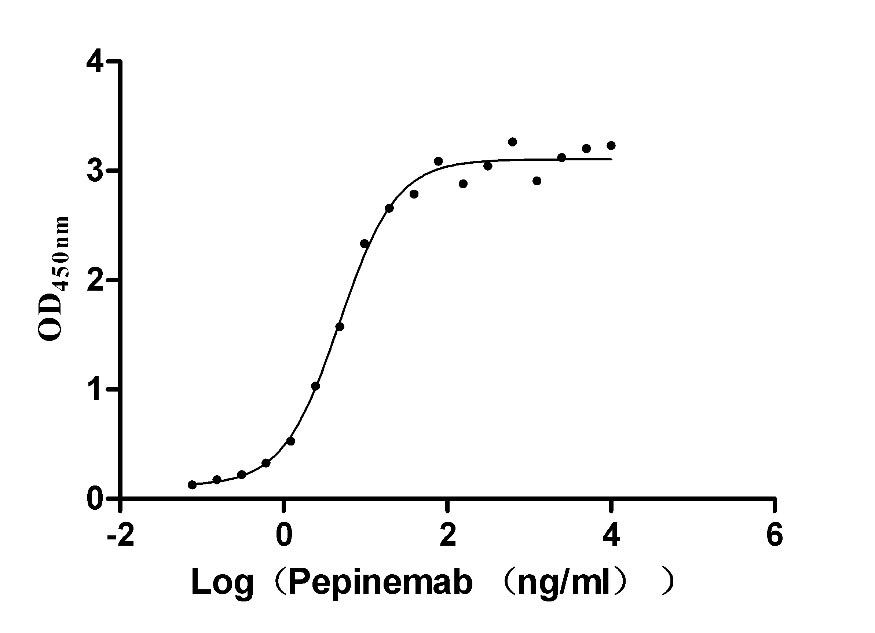
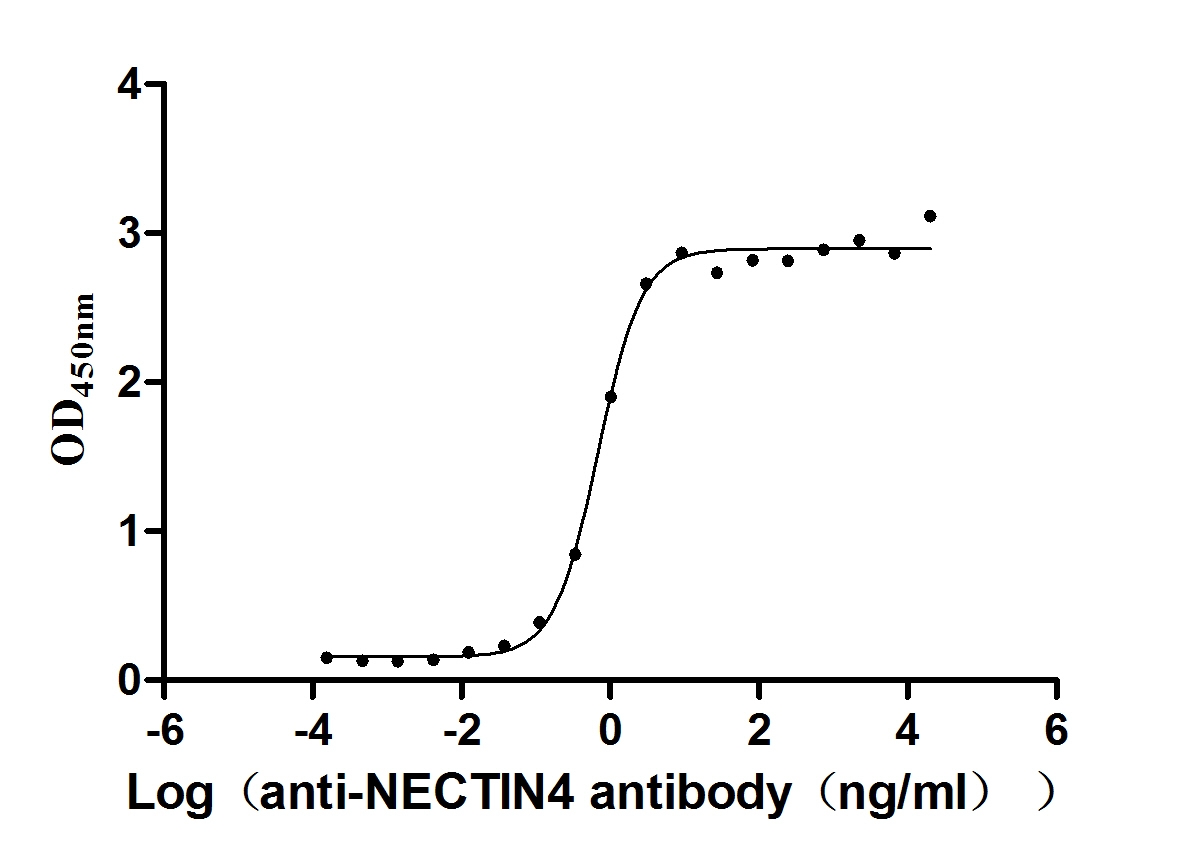
-AC1.jpg)
